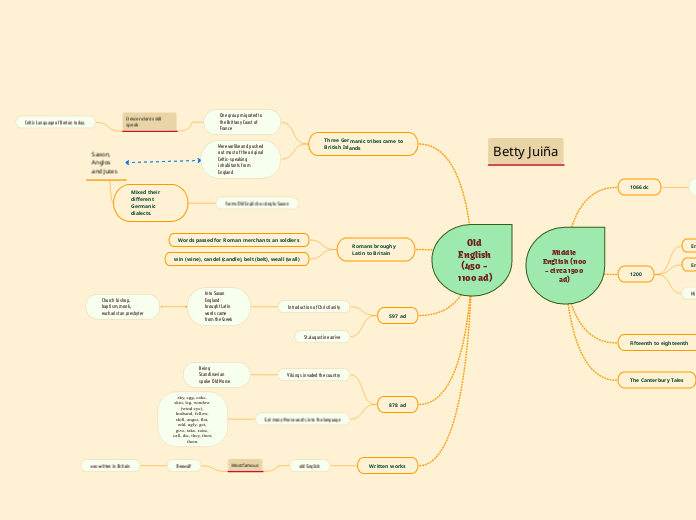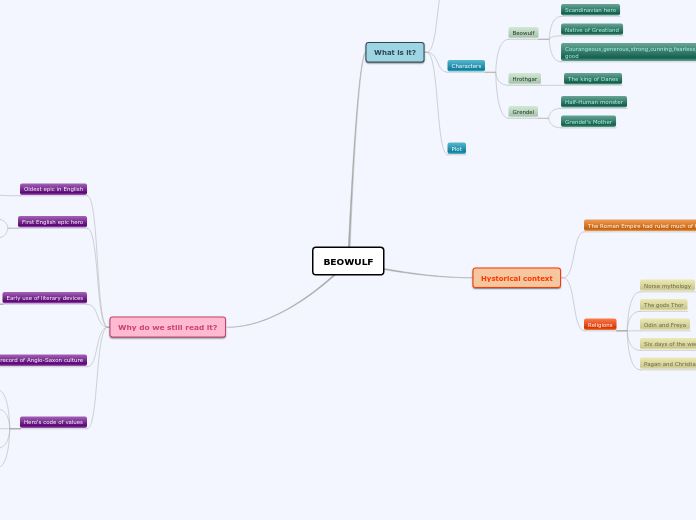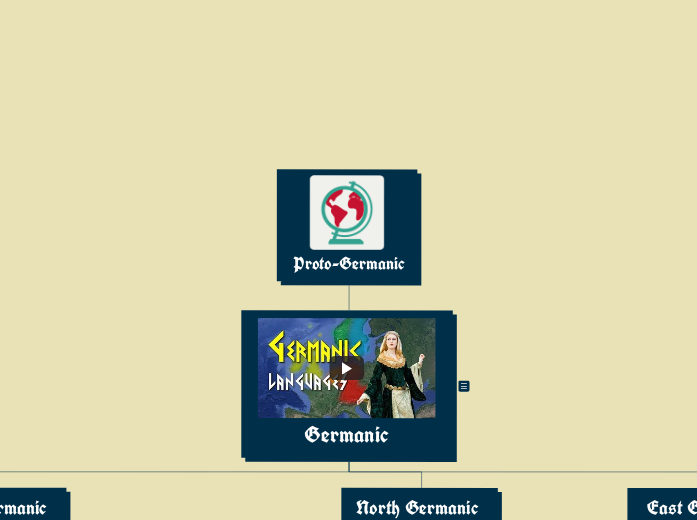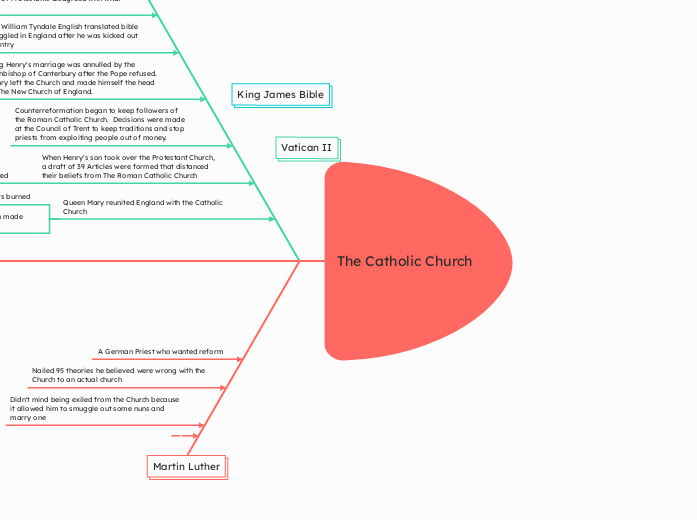Betty Juiña
of power, such as crown, castle, court, parliament, army, mansion, gown, beauty, banquet, art, poet, romance, duke, servant, peasant, traitor and governor
Middle English (1100 - circa 1500 ad)
The Canterbury Tales
Famous collection of stories
Give us an idea of what life was like in fourteenth century England.
Fifteenth to eighteenth
Great Vowl Shit
vowels shifted upwards
Sound change affecting the long vowels of English
1200
Middle English
fFrench
Old English
English was being spoken instead of written
England and France had split
1066 dc
Duke of Normandy William the Conqueror
brought his nobles
English language was considered vulgar tongue
Latin used for written
They spoke French, was the language of the court, administration and culture
Became king
invaded England
Saxon, Anglos and Jutes
Mixed their different Germanic dialects.
Forms Old English or Anglo-Saxon
Old English (450 - 1100 ad)
Written works
old English
Most famous
Beowulf
was written in Britain
878 ad
Got many Norse words into the language
sky, egg, cake, skin, leg, window (wind eye), husband, fellow, skill, anger, flat, odd, ugly, get, give, take, raise, call, die, they, their, them.
Vikings invaded the country
Being Scandinavian spoke Old Norse
597 ad
St.Augustine arrive
Introduction of Christianity
Into Saxon England brought Latin words came from the Greek
Church bishop, baptism, monk, eucharist an presbyter
Romans broughy Latin to Britain
win (wine), candel (candle), belt (belt), weall (wall)
Words passed for Roman merchants an soldiers
Three Germanic tribes came to
British Islands
Were warlike and pushed out most of the original Celtic-speaking inhabitants from England
One group migrated to the Brittany Coast of France
Descendants still speak
Celtic Language of Breton today.









